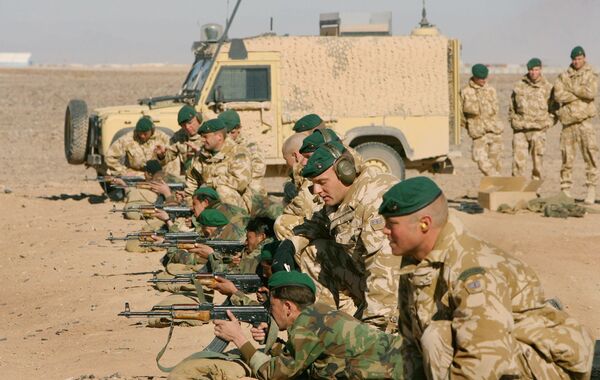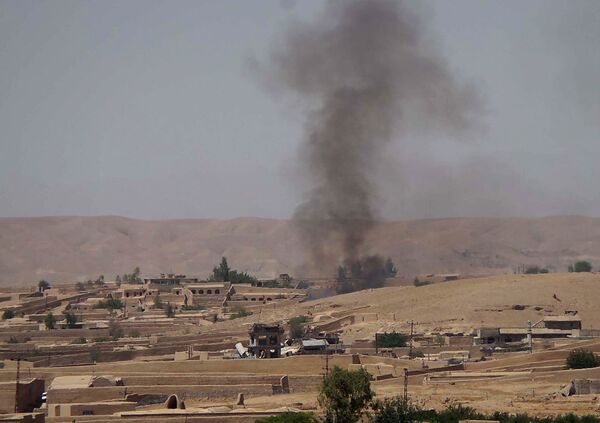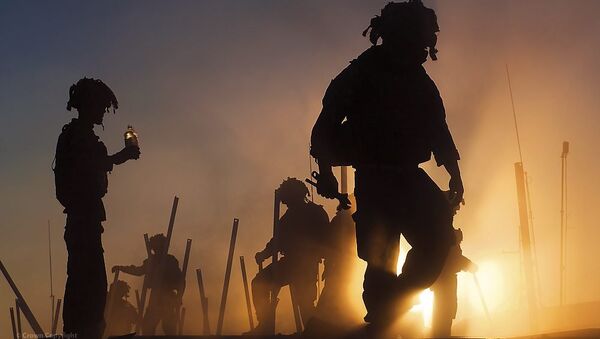For years, Afghanistan has been in a continued state of political and social turmoil. Government forces are continually fighting the Taliban, and as a result, instability has persisted throughout the country.
In total, 456 British forces personnel or MoD (Ministry of Defense) civilian staff including doctors and nurses were killed while serving in Afghanistan.

Troops lowered the flag at Camp Bastion in October 2014, ending combat operations in the country after 13 long years, though some remained in training and support roles.
Dr. David Lowe, principle lecturer at Liverpool John Moores University Law school, who specializes in defense and terrorism, said that before Britain and NATO leave Afghanistan they must ensure the proper infrastructure is in place, in order to avoid another refugee crisis.
"It's been an issue in relation to Afghanistan for the last couple of years. Did the UK, and the US in particular, depart too early? Were the forces ready for this? One of the things we have seen over the last 12 months is military personnel returning back to Afghanistan, in small numbers — and certainly from a UK perspective, very small numbers — to help train the Afghanistan forces," Dr. Lowe told Sputnik.
"But look at regions like the Helmand [Province], where the UK was, predominantly during its presence in Afghanistan… Even from the early days, it was quite clear that it was going to be more problematic from what they had originally perceived, because as well as the Taliban, there of course were the drug warlords who didn't want a [foreign] presence and this is an issue that needs to be addressed."
Afghanistan is still however in such a fragile state, even years after NATO invaded. Dr. Lowe also believes the fact there is no central government has not helped when trying to stabilize the country.
"We know there's a central government in Kabul, but you look at the history of the country and the geography, the population, there are certain factions within that have never been united. And of course the Taliban isn't just an Afghan problem, we see a neighboring Pakistan with different Taliban factions… there could be different Taliban factions which could even be in competition with each other at times, so this is an issue where we need to support the Afghan government, if we can," Dr. Lowe told Sputnik.
Terrorist Attacks this month
— Rehman Siddiq (@RehmanSid) 20 February 2017
U heard of:
Bowling Green
Sweden
Atlanta
U didnt heard:
Pakistan
Iraq
Somalia
Afghanistan
India
Nigeria
EGYPT
The stability of Afghanistan is key if we are to avoid a refugee crisis in the future, Dr. Lowe believes that ensuring the country has a strong infrastructure is the most important part of this.
"I know things have changed politically over the last 12 months, but it is looking at funding the Afghanistan infrastructure that's important, it's something we have to consider for other regions."

"When we look at states like Libya and what's going to happen with Syria and Iraq in the future, hopefully there will eventually be a peaceful settlement —that's a long way down the road — but it's looking at the infrastructure as well, it's not just a military presence that's the be all and end all… You have to look wider than that and have to try and support re-building, also economically, give them support and encourage industry to move in, and not just the security industry," Dr. Lowe told Sputnik.
The question of whether NATO will have to remain in Afghanistan for a further 50 years to stabilize the country is a pertinent one, and Dr. Lowe hopes that this wouldn't have to be the case. However, he stresses that the only way to avoid this is to ensure the Afghan people can govern themselves.
Referring to the growth of al-Qaeda and how the terror group brought Afghanistan to its knees overnight, Dr. Lowe believes it will be at least 10 years before the country starts to see light at the end of the tunnel.





